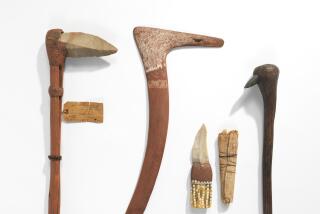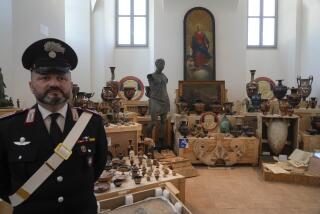4,000-year-old artifact held by private L.A. collection returned to Iraqi government
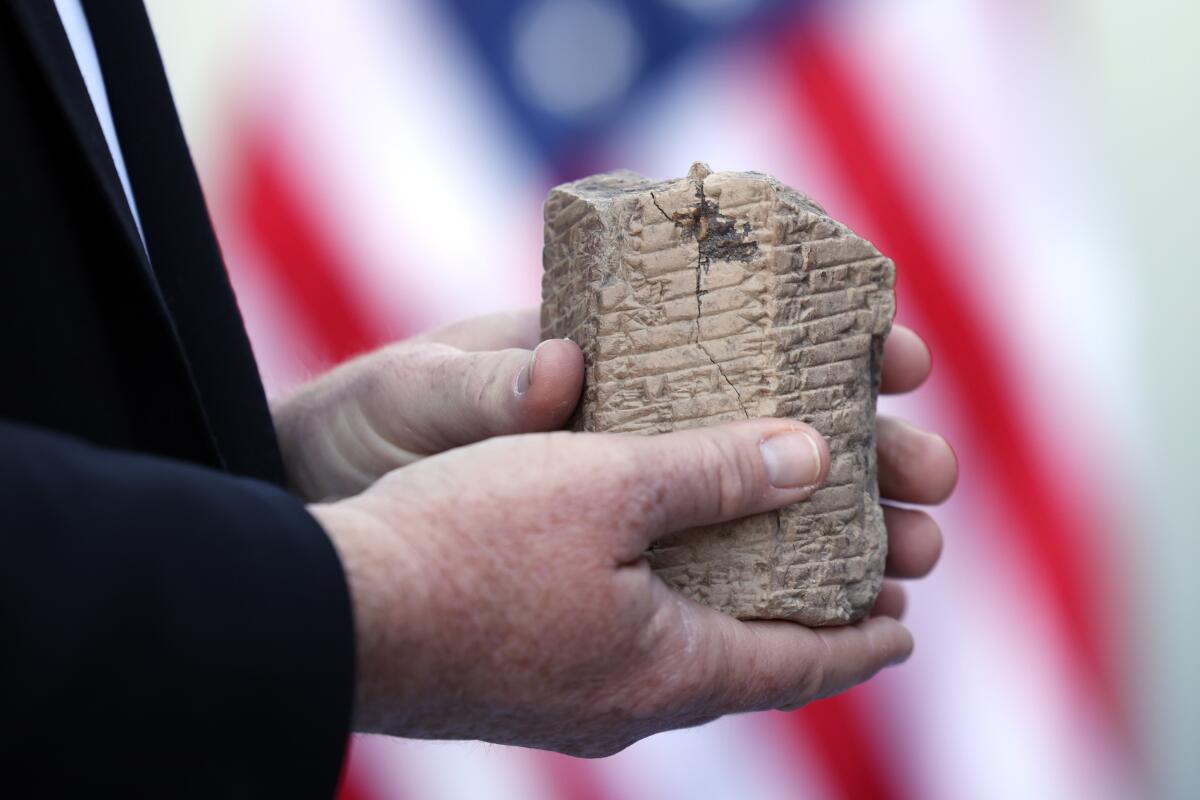
- Share via
Federal agents on Thursday returned two ancient stone artifacts to representatives of the Iraqi government at the country’s consulate in Los Angeles.
The artifacts — a fragment of a stone tablet inscribed with cuneiform characters and a hexagonal prism used to teach schoolchildren the cuneiform alphabet — are believed to be about 4,000 years old, authorities said.
The tablet fragment was purchased in an online auction, but U.S. Customs and Border Protection flagged the item because it lacked the documentation needed to import it, said Chad Fredrickson, a special agent from Homeland Security Investigations who handled the case.
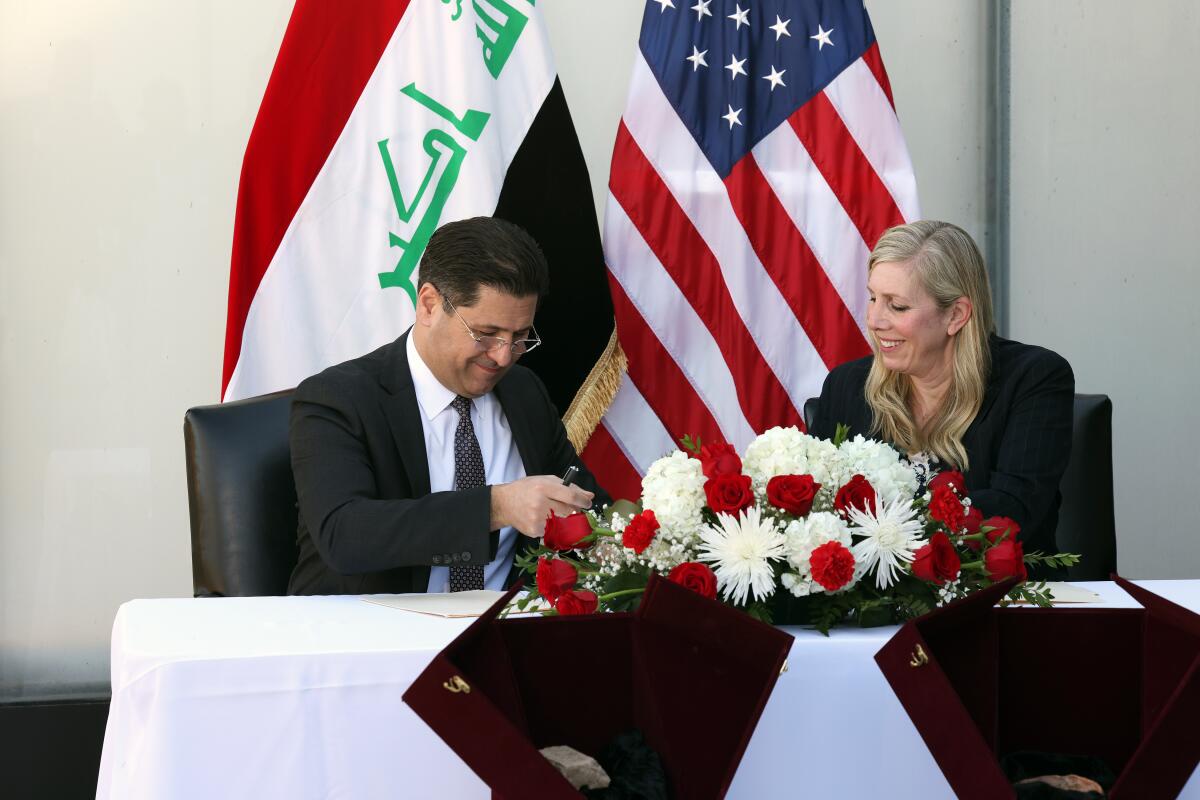
Agents showed the artifact to an expert, who determined that it was originally from Iraq. Items of cultural significance cannot be imported from Iraq without the Iraqi government’s consent, which it had not granted in this case, Fredrickson said. The purchaser agreed to turn over the artifact to federal agents, who arranged for the tablet fragment to be returned to the Iraqi government.
Homeland Security Investigations, a branch of the Department of Homeland Security, is responsible for investigating violations of import and export laws.
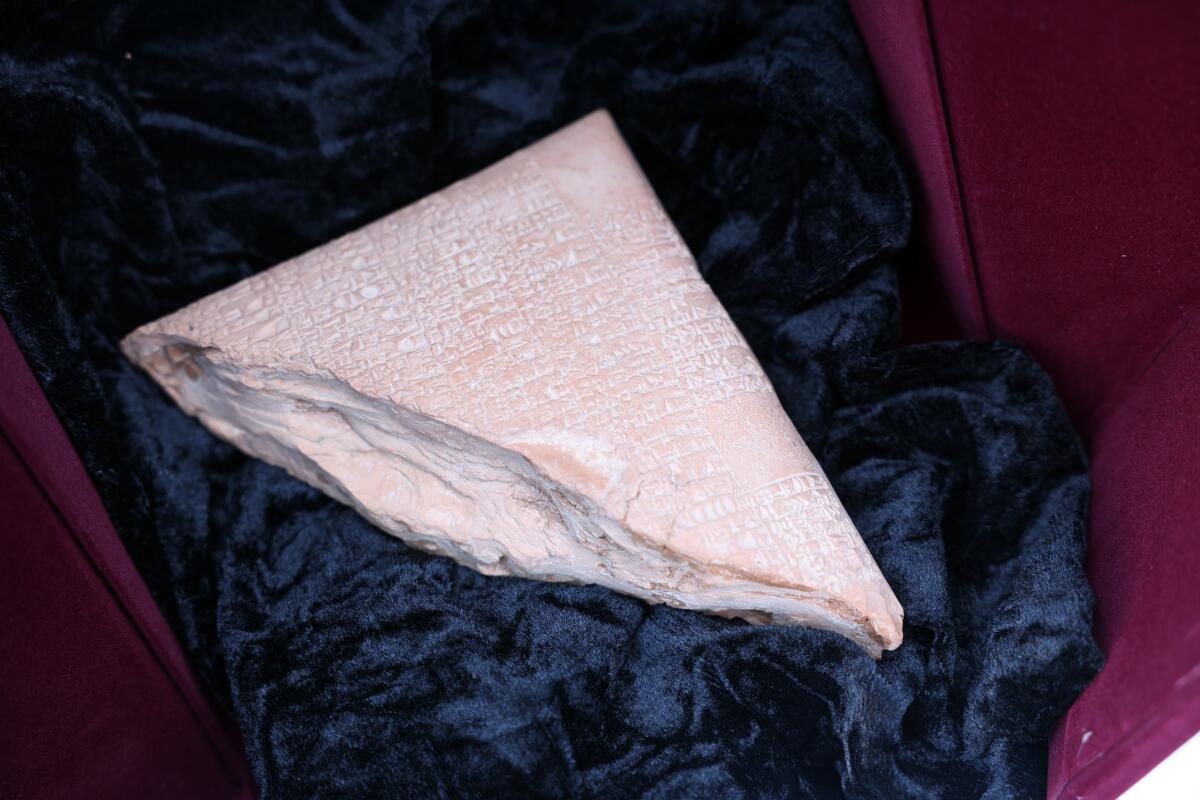
The hexagonal prism was being held by a private gallery in Los Angeles, whose operators approached agents with “several items of interest,” Fredrickson said, “but the most interesting item they had was this cuneiform prism.”
Agents showed the artifact to an expert, who said it had likely been used to teach children the alphabet during the Old Babylonian period. Fredrickson said the expert had seen only two other such prisms, one of which is kept by Yale University and another that has since gone missing.
Because the gallery had no proof of title to the prism, its operators turned over the artifact to Homeland Security Investigations.
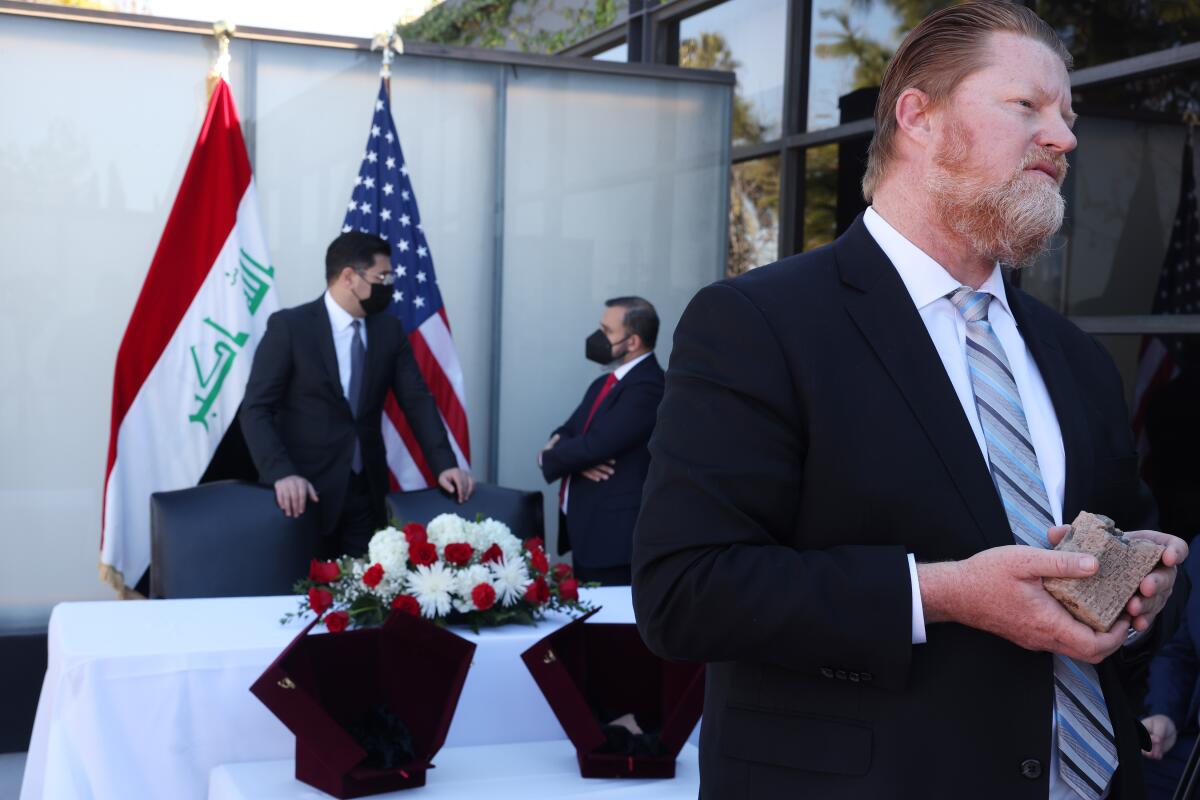
While the exact provenance of the two artifacts was unclear, they “almost certainly” were looted from Iraq, Fredrickson said. The tablet fragment is believed to have come from the area of the ancient city of Umma, a part of Iraq that has been robbed of many precious artifacts in recent years, Fredrickson said.
The people who turned over the artifacts will not face criminal liability. “Somebody who buys something at an online auction and knows nothing about it, I’m not looking at them criminally,” Fredrickson said.
A gallery or individual buyer who appears to be willfully skirting import restrictions, however, could face criminal prosecution, said Fredrickson, who specializes in cultural property cases. He has repatriated artifacts to Italy, Russia, India and, frequently, the Middle East, where he said the looting of cultural relics has become more common in the last 20 years.
Iraq’s consul general in Los Angeles, Salwan Sinjaree, said the two artifacts will be returned to Iraq and transferred to the custody of the Ministry of Cultural Affairs, which will place them in a museum.
More to Read
Sign up for Essential California
The most important California stories and recommendations in your inbox every morning.
You may occasionally receive promotional content from the Los Angeles Times.

